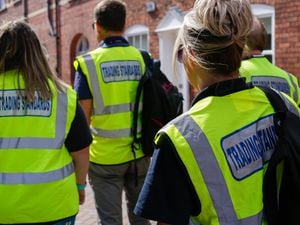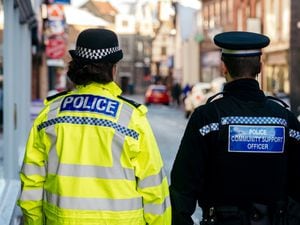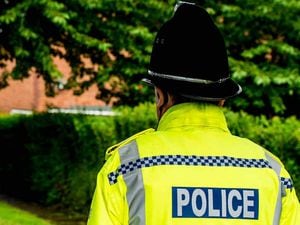How 7/7 changed the life of Shropshire's new top cop
It was a sunny Thursday morning and a high-flying young corporate lawyer was on his way to the office in the City of London.
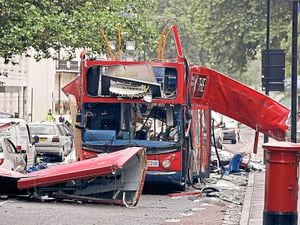
"The bus went round the corner, there was this huge bang, and the bus exploded," he recalls.
The dreadful terror attacks of July 7, 2005, would have a profound effect on the young Tom Harding, and would have a significant impact on his future career direction.
"I felt a bit helpless, sitting in my office near King's Cross, while all this was going on outside," says Mr Harding, the new top cop responsible for policing across Shropshire.
"I was already questioning the longevity of being a solicitor, in that I couldn't see myself doing it for the next 30 years. The London bombings were a big thing for me, it's what attracted me to policing for a change of job."
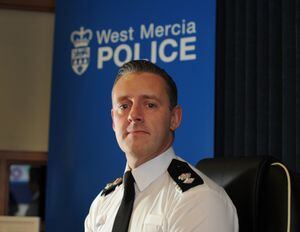
It is a change which has seen a meteoric rise to the top. Just over 11 years since joining the force as a rookie Pc, the 37-year-old has just taken over as the new man at the helm in the county, replacing the recently retired Kevin Purcell as the chief superintendent in charge of Shropshire, Telford and The Wrekin.
It is a decision he has never regretted, although the drop in pay when he joined the force came as a bit of a culture shock.
"I had just bought a house back in Shrewsbury, and I had to have my brother move in with me to help pay the mortgage," he recalls.
"I grew up in Shrewsbury, I was a pupil at Meole Brace School, so it did mean I could move back home. I went to school here, my family live here and a lot of my friends still live here, so it is important to me that I am in a position to make a real difference."
See also:
Mr Harding says his priority will be to let criminals know that Shropshire is a very unwelcoming place for them to go about their business.
"My ambition is to work more closely with the public so that we understand their needs," he says.
"We want to make Shropshire a really unattractive place to come and commit crime. That means we will be carrying out stop-and-search, there will be a lot of undercover initiatives, and covert policing surrounding organised crime.
"To put it into crude business terms, if you can't make money somewhere, you won't operate there, so we want to make it as difficult as we can for them."
Cutting the number of burglaries will be another priority, he says, pointing out that in the 12 months to date, burglary fell by 15 per cent in Telford & Wrekin, and 20 per cent in the rest of Shropshire.
"Burglary is one of those offences that has a real impact on somebody, and we have had a real focus on that," he says.
"For that reason, we have a policy of giving a bespoke response to burglary, which means burglary victims will get a visit from officers, they will be offered free SmartWater and crime prevention advice.
"We make the neighbours aware there has been a burglary, and from that we may gain intelligence which can assist us in our investigations."
The exploitation of young people, be it through 'county lines' drug networks or sexual exploitation, has been in the news much in recent years. Mr Harding says these problems are not new ones, but the way police tackle them has changed considerably over the past decade, with far more emphasis on working with other public bodies to spot the signs at the earliest possible opportunity.
He says the force has had much success in tackling organised crime by having officers based around the key routes into the county from nearby major cities.

